What Food do Rabbits Eat? [List of Healthy Foods for Rabbits]

Rabbits need to eat healthy food to grow, survive and produce better.
But the question is “What do rabbits eat?”
Can rabbits eat cucumber or cheese? Or do they prefer to eat tomatoes or strawberries?
Whatever the correct answer may be, you are about to find out in this article.
This article contains the different food alternatives available for rabbits – fruits, herbs, hays and flowers.
In addition, the article also contains the best way to feed a rabbit so that they do not fall sick easily.
Then, we will conclude by showing you some of the foods you should never feed a rabbit.
If you are ready, let’s dive right in.
What food do rabbits love to eat?
Rabbits majorly eat mostly hays and grasses. Rabbits prefer to eat more of Timothy or Meadow Hay, grass, and plenty of clean water.
This is in fact, the most important part of their diet.
Providing food that mimics what rabbits would eat in the wild is vital for proper growth and development.
However, you can still feed the rabbits fresh fruits and vegetables as part of a balanced diet.
How to feed rabbits properly

There is the right way and there is the wrong way of feeding rabbits.
The first rule of feeding rabbits and their delicate tummies is: if in doubt – don’t let them eat it!
Rabbits have strong taste buds and will try anything even if it’s poisonous.
So, it’s up to you to protect the bunnies from eating the wrong type of food that will harm them.
Also, whatever style of feeding your rabbits you decide to follow, it is important that it is consistent.
Here are some rules to follow when feeding rabbits.
- You don’t want to poison your bunnies so, it’s your duty to look out for poisonous plants. Make sure that all feed is fresh and completely free of mould.
- Always wash all fresh foods thoroughly before feeding the rabbits. Also, don’t feed them plants from roadsides or any that contain pesticides.
- Feed at the same time every day, but it is better to feed twice per day than once.
- Never feed lawn clippings to your bunnies because they ferment very quickly and can be extremely harmful to rabbits.
- Always keep an eye on your rabbits’ droppings for signs of a poor feeding pattern.If their droppings are small, dry and dark or runny you will need to try increasing the hay or grass and decreasing the greens and veggies – and eliminating certain foods at times.
- Do not feed rabbits with too much commercial rabbit food because it can also upset their digestive system.
- Never change feed suddenly to avoid digestive upsets. In the wild rabbits eats what is available as per the season. Seasons change slowly and any change in feed should be introduced slowly.
- If you are going to change their meal, only give a small amount and wait for 24 hours. If your rabbit produces soft poo, withdraw the food and go back to normal. Allow about 5 – 7 days to pass before making any other additions.
- Where there is more than one rabbit in a cage make sure that all of them can feed comfortably at the same time.
- Feed troughs should be narrow enough to ensure that no rabbit can sit in them easily and must be kept spotlessly clean at all times.
Now that you know some o the rule of feeding rabbits properly, let’s see all the different foods rabbits eat.
List of good foods your rabbits can eat
As stated earlier, hays and grasses remain the most important food in a rabbit’s diet.
But you also need to make sure to buy only organic produce if at all possible.
If you are collecting wild foods such as dandelion greens, make sure they are from a pesticide-free area.
Remember to wash and scrub (in the case of hard vegetables) all fresh foods regardless of the source before serving them to your rabbit.
1. Rabbits eat vegetables or leafy greens:
Rabbits eat leafy greens and vegetables even in the wild.
These foods should make up about 75% of the fresh portion of your rabbit’s diet (about 1 packed cup per 2 lbs of body weight per day).
Make sure you wash the vegetables thoroughly before feeding the rabbits.
Also, If you are not sure of a new vegetable, offer a small portion to the rabbits with other feed that you know they like.
The rabbits will ignore an unsuitable plant unless it is very hungry (which should never happen).
Which vegetables can rabbits eat?
The best vegetables for rabbits are spinach, kale, marog, cauliflower leaves and beetroot.
Here is a list of all possible leaves and vegetables to feed your rabbits.
- Artichoke leaves
- Asparagus
- Baby Sweetcorns (but not full-size ones)
- Beetroot (care with leafy tops as high levels of oxalic acid) – can cause gas so limit
- Broccoli (and its leaves, including purple sprouting varieties) – can cause gas so limit
- Brussel Sprouts (leaves and sprouts) – can cause gas so limit
- Cabbage (can sometimes cause digestive upsets) – can cause gas so limit
- Carrots (& carrot tops) – not the roots as they are high in sugars. You must reduce carrots because of its high sugar content.
- Cauliflower (and the leaves)
- Celeriac
- Celery leaves
- Chicory
- Courgette (and flowers)
- Cucumber
- Curly Kale
- Fennel
- Green beans
- Kohlrabi
- Peas (including the leaves and pods)
- Peppers (red, green and yellow)
- Pumpkin
- Radish Tops – can cause gas so limit
- Rocket (also known as Arugula)
- Romaine lettuce (not Iceberg or light coloured leaf)
- Spinach (only occasional)
- Spring Greens
- Squash (e.g. Butternut)
- Swede
- Turnip (only occasional)
- Watercress
2. Rabbit also feed on herbs:
Herbs are equally important as vegetables. Not only are herbs considered as food, but they are also natural medicines for rabbits.
Most herbs are safe for rabbits, and you can find many in local stores or backyard gardens.
Herbs can taste very strong so offer a little to start with to get your bunnies used to them.
Here is a list of herbs that rabbits eat
- Basil
- Coriander (also known as Cilantro
- Dill
- Mint (peppermint)
- Parsley – not too much as high in calcium
- Oregano
- Rosemary
- Sage
- Thyme
Wild garden herbs, weeds and flowers that rabbits can eat
Double-check which plants are in your garden before letting your bunnies loose!
- Borage
- Calendula
- Camomile
- Chickweed (astringent)
- Clover (leaves and flowers)
- Coltsfoot
- Comfrey
- Dandelion (diuretic properties)
- Goosegrass (cleavers) but may stick to coat!
- Lavender
- Mallow
- Nettle
- Nasturtium (leaves and flowers)
- Shepherd’s purse
- Sow Thistle
- Plantain
- Yarrow
3. Rabbits like to eat fruits:
Rabbits eat fruits, you need to feed them in moderation due to sugar content.
Fruits should comprise no more than 10% of rabbits’ diet. That’s about 1 teaspoon per 2 lbs of body weight per day).
Do not feed them stones, plants or seeds of fruits unless otherwise stated, as most of the time they are poisonous!
Rabbits love sugary fruit and will eat too much of it, which is bad for them. Therefore it’s up to you to limit it!
NOTE: Unless otherwise stated it is more nutritious to leave the skin on the fruit (particularly if organic), just wash thoroughly.
If you are in doubt about the source of the fruit and you are concerned about chemicals in the skin, then remove it.
Which fruits can rabbits eat?
Rabbits love to eat the following fruits.
- Apple (any variety, without stem and seeds)
- Apricot
- Cherries (any variety, without the pits or the plant itself. They contain cyanide and are therefore poisonous)
- Pear
- Peach
- Plum (without the pits)
- Kiwi
- Papaya
- Mango
- Grapes
- Strawberries
- Tomatoes
- Raspberries
- Pineapple (remove skin)
- Banana (remove peel; no more than about 2 1/8 inch slices a day for a 5 lb rabbit…they LOVE this!)
- Melons (any – can include peel and seeds)
- Star Fruit
- Apricot
- Currants
- Nectarine
4. Clean water must be in the diet of rabbits:
Water must be available at all times and should be fresh. If any system is used other than nipples, these containers should be algae-free and cleaned regularly.
5. Rabbits love to eat hay:
Hay is an essential part of the rabbit’s diet and must be available at all times.
You can make hay for rabbits from a variety of dried grasses such as teff, eragrostis, red orchard grass, oats and most fine grasses.
A can have a mixture of grasses together to give tasty and varied hay.
Herbs like parsley and stinging nettles can also be added to the mix.
Oat hay also makes a very good feed but you must not give this to those rabbits that are about to kindle (give birth).
If oat hay is put in their nest box, the tiny barbs on the oat seed can puncture the babies’ tummies and can kill them.
You cannot classify thick thatch grass as hay because it has very few nutrients and is not palatable.
Make sure to store your rabbit hay in a dry and cool place.
Do not give the rabbits mouldy hay as it is very dangerous to their health.
6. Add lucerne (alfalfa) to your rabbits’ diet:
Lucerne is an excellent source of protein and you should use it as a protein feed and not used as hay.
It is too high in protein and an excess will cause bloat.
There are several ways you can feed lucerne to your rabbits.
i. Feed the rabbits fresh lucerne immediately after cutting
You must introduce it slowly as it is very palatable and refreshing.
Wilted lucerne will cause serious bloat and can kill the rabbit.
However, an hour after feeding, you must remove all left-overs from the cages.
The leftovers can make a compost heap for vegetable farming.
ii. Lucerne can also be fed dried.
Because the bulk of the food value of the dried lucerne is in the leaf, it is a good idea to place the lucerne hay either on a sheet of cardboard or in a container.
You can also use a hayrick with a solid bottom.
The dry leaves fall off the stalk very easily and this is a total waste of an expensive feed resource.
The best way to feed dried lucerne is as a chop in a feed dish that is emptied and cleaned regularly.
Lucerne pellets are available from all feed suppliers and can replace all other concentrated feed provided it is backed up with good hay and fresh, clean green feed.
7. Feed concentrates and pellets:
You can get concentrated high protein rabbit pellets from all feed suppliers.
However, they can be very expensive.
Pellets are not essential to successful small-scale rabbit production that aims at food security rather than mass production for the export or luxury markets.
Ideally, a small ration of pellets or lucerne pellets backed by hay and green feed will ensure the reasonable growth of healthy youngsters.
The quantity of feed your rabbits require depends on the quality of the hay and green feed available.
However, you can start with 80 gm (about a tuna tin) per rabbit per day.
List of foods you should never give a rabbit to eat.
While there are a number of foods that rabbits love to eat there are some foods that you should never feed rabbits.
Because of the nature of the rabbit digestive system, a number of foods can disrupt their digestion and be harmful to their health.
Here is a list of foods that you should never feed your rabbit;
1. Yogurt Drops:
According to Rabbit.org research, yoghurt drops can cause a toxic overgrowth of bad bacteria in the intestinal tract.
This is a lethal case of enterotoxemia.
If you’re looking for a healthy treat to feed your rabbit, try green peppers or Brussels sprouts.
2. Bread, Pasta, Cookies, and Crackers:
These foods are high-carb sugary treats and will only end up causing stomach issues for the rabbits.
When it comes to feeding rabbits, avoid foods that are high in sugar or artificial ingredients.
So, as it is with yoghurt drops, bread, pasta, cookies and crackers could potentially lead to enterotoxemia.
3. Avocado:
When you think of ideal rabbit snacks, fresh fruits and veggies probably come to mind.
However, you should never include avocados in your rabbit’s diet.
That’s because avocado is a fatty fruit and can be deadly to your rabbits when they feed on it.
4. Cereal:
Cereals are totally bad for rabbits. You should avoid feeding your rabbits with cereals.
Feeding your rabbit cereal—like muesli, processed food made up of flaked maize, peas, pellets, grains, and seeds—can lead to tooth and stomach problems.
5. Iceberg Lettuce:
You should avoid feeding your rabbit light-coloured lettuce.
This is because it can contain lactucarium, a chemical that can be harmful to your rabbit’s health if ingested.
Iceberg lettuce also contains mostly water and will add little to no nutrition to your bunny’s diet.
6. Silverbeet
Like iceberg lettuce, silverbeet—sometimes referred to as chard—is another leafy green that your rabbit should avoid.
According to a veterinary centre in New Zealand, vegetables can cause your bunny to suffer from colic and bloating.
Instead of feeding rabbits silverbeet, replace it with high-fibre fruits, veggies, and herbs.
Radishes, alfalfa, and rosemary are all great options.
7. Walnuts:
Do not feed your rabbits walnuts because they are high in fat, not fibre.
Lots of fat is bad because it can cause your rabbit uncomfortable indigestion.
If you’re looking for a healthy snack to feed your bunny, try fresh veggies or herbs.
8. Oatmeal:
Although feeding rabbits oatmeal won’t cause them major harm, it’s not an ideal meal.
Rabbits need large amounts of Timothy hay, hearty greens, and freshwater—oatmeal does nothing to boost their nutritious diet.
9. Chocolate:
Chocolate is an absolute no-no for bunnies.
As with companion dogs, chocolate has no place in your rabbit’s diet.
The sweet treat can be poisonous to rabbits and should never be fed to them.
10. Peanut Butter:
Like walnuts, you must avoid feeding the rabbits peanut butter because it is also high in fat.
The creamy snack will do nothing for rabbits, except possibly give them a tummy ache.
11. Potatoes:
Although potatoes won’t necessarily poison rabbits, this human-favourite vegetable isn’t ideal for them.
Potatoes are high in carbohydrates and starch, both of which can cause issues for your bunny’s digestive system.
12. Meat:
This one is so obvious.
Rabbits are herbivores, meaning that they eat plants.
Wild bunnies would not eat meat, and neither should you feed your domesticated rabbits.
Conclusion of what food rabbits eat
If you have read to this point you will agree that the food that rabbits love most are vegetables, fruits and herbs.
You can also include some food concentrates and ensure you provide a daily supply of clean water for the rabbits.
As for the food that you should not feed rabbits, foods containing lots of fat or sugar are bad for rabbits.
If you follow this guide and feed your rabbits only healthy fruits, vegetables and herbs, then they will not have issues.
With this, we have come to the end of this article, but before you go.
Please click on the social media icons on your screen to share this post and like us on Facebook to continue the conversation.
- 12 Amazing Red Chicken Breeds (With Pictures)
- Top 15 White Chicken Breeds [With Pictures and FAQs]
- 17 Largest Chicken Breeds in the World (With Pictures)
- 15 Black Chicken Breeds You Should Know About (With Pictures)
- Duroc Pig Breed All You Need to Know: Origin and Characteristics
- Minorca Chicken – Characteristics, Origin, Breed Info and Lifespan
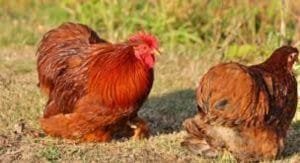
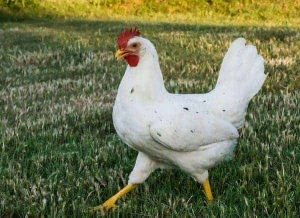
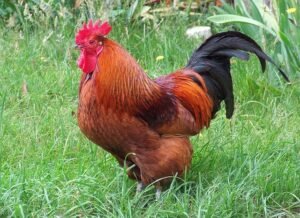
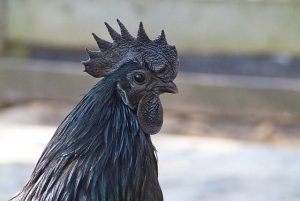
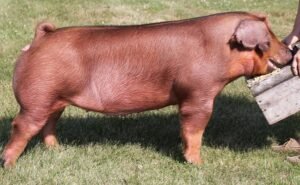
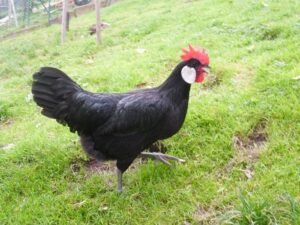



![What do Pigs Eat? [Most Essential Food for Pigs]](https://agro4africa.com/wp-content/uploads/2022/03/white-piglet-eating-food-e1648548623614.jpg)

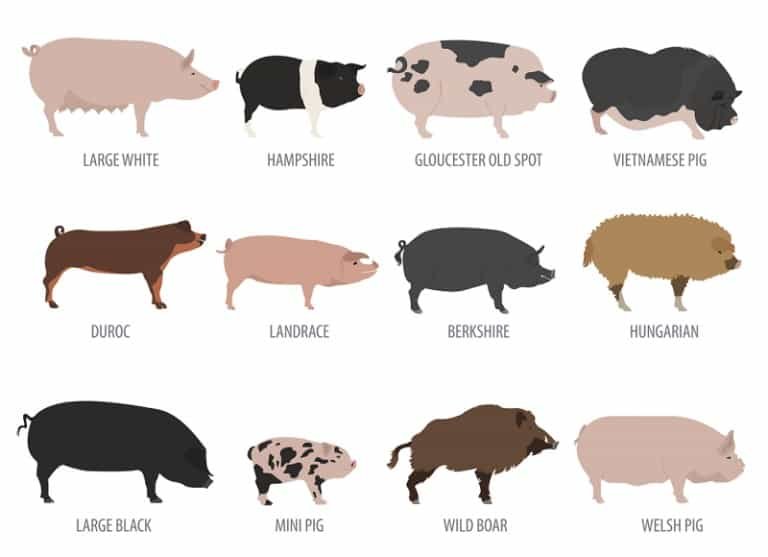
This is an informative and helpful list of healthy food options for rabbits. It’s great to know what they can eat and enjoy their diet in a balanced way.